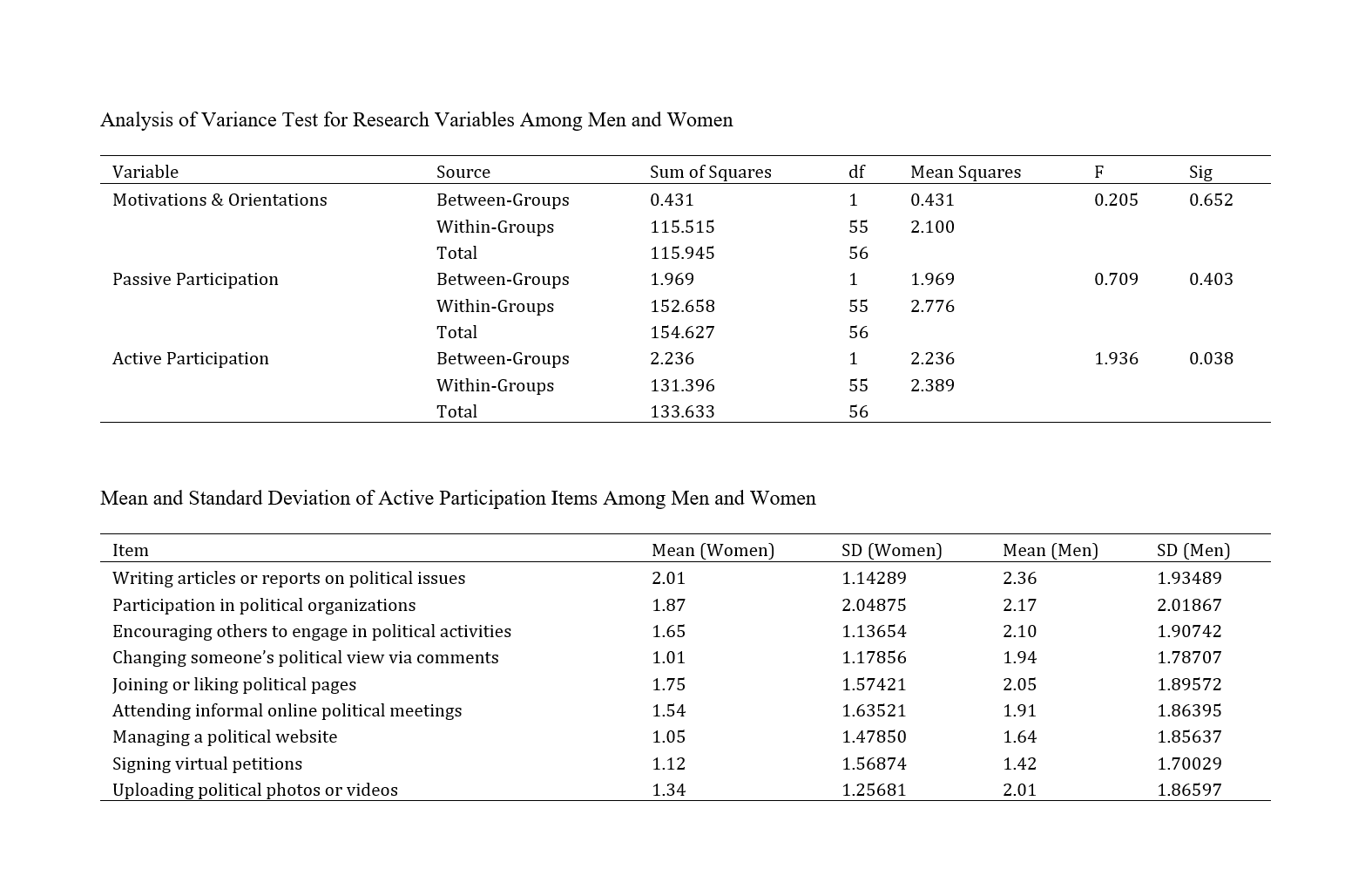Gender and Online Political Participation (Case Study: Students of Islamic Azad University, Ahvaz Branch)
Abstract
Political participation is one of the most important manifestations of political activity and behavior in society. The level and type of this participation have always been significant topics in political science. Additionally, political participation is one of the key indicators of development. With the expansion of new social networks, the impact of these networks on political attitudes and orientations, particularly in the political sphere, has gained considerable importance. In recent years, "online political participation" has emerged as an important approach. The theoretical framework of this study is based on the perspectives of Perry, Milbrath, and Goel. Using a survey method, a sample size of 380 participants was gathered through online questionnaires distributed via links in virtual channels and groups affiliated with the Islamic Azad University, Ahvaz Branch. Gender was examined as the main variable in the study of political participation. The findings revealed significant differences between women and men in terms of the use of social networks, the purposes for which they use these networks, and their active participation. The results indicate that female students, compared to male students, show less interest in political issues. These findings are consistent with previous studies emphasizing gender differences in political participation. Previous research suggests that women generally exhibit less attention and interest in political matters.
Downloads






